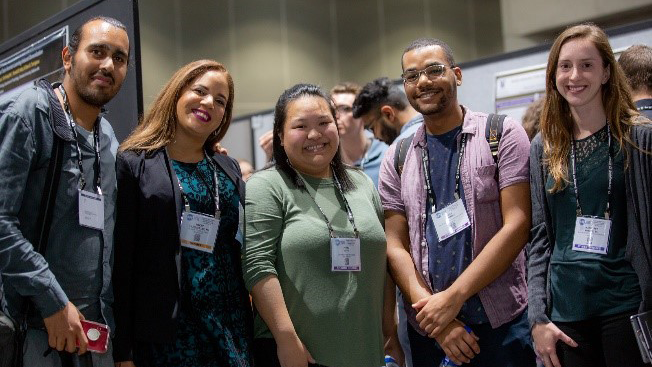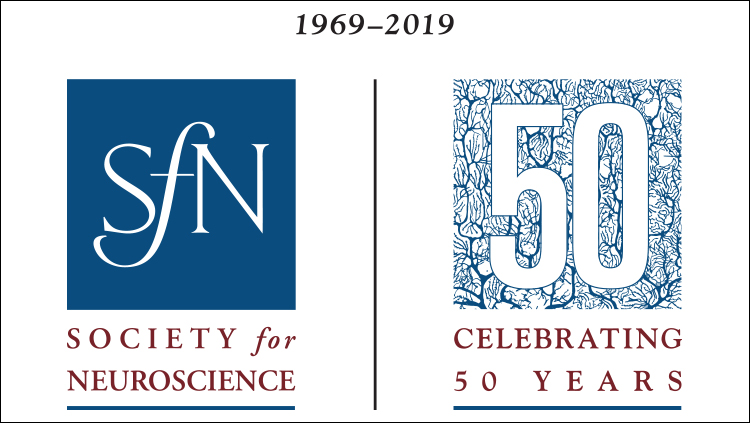Fall Council Roundup
The SfN Council met November 2, 7, and 8 in San Diego to review the many successes of Neuroscience 2018. Council reflected on the attendance – more than 28,600 individuals representing 73 countries – as well as speaker diversity, 40 percent of whom were women and over 30 percent who were based outside the United States. A major highlight of the meeting was the Dialogues Between Neuroscience and Society Lecture given by world-renowned and Grammy Award-winning jazz guitarist, Pat Metheny, on the impact of music on the brain. Council also met with all committee chairs to hear reports on advances over the past year and discuss opportunities to expand the reach of SfN’s mission around the world.
Programming
The Program Committee, charged with curating an engaging and balanced program for each SfN annual meeting, introduced three recommendations from a working group tasked with exploring opportunities to enhance and update elements of the annual meeting. Each recommendation was approved by Council.
The first of three recommendations brought before Council was that the new Storytelling Session should be made a permanent offering and that the topic be chosen from options formally submitted by members. The session debuted in 2017 and was very positively received, with 90 percent of attendees indicating on a post-session survey that they would attend future sessions. The 2018 “Telling Stories of Science” event described how personal narratives can be leveraged as a method of storytelling to improve communication with the public; three presenters shared personal testimonials about the importance of science in their lives. Formally integrating this session will offer new insights into sharing and promoting scientific progress.
The second recommendation is to offer 2019 abstract submitters an opportunity to upload a one to three-minute video previewing their research and inviting viewers to attend to their poster session. This will be offered on a first-come, first-served basis to the first 150 individuals who request it when submitting their it abstract. Submitters will be asked whether they are interested on the abstract submission form and selected individuals will receive formal invitations to send their videos from the Program Committee in mid-July. All video content will be displayed on the SfN.org website and the Neuroscience Meeting Planner application.
Finally, the Program Committee recommended a new photography policy which allows presenters and exhibitors to choose whether or not to allow photography and recording of their poster, talk, or exhibit booth. Council and the Program Committee are committed to encouraging scholarly conduct at the meeting and recognize the necessity of offering presenters the autonomy to determine whether they would like their work recorded or shared. More information is available here.
Council and the Program Committee also discussed the continued challenges posed by restrictive travel policies around the world, including the U.S. travel ban that prevented scientists from certain countries from attending the annual meeting. Council has asked the Program Committee to explore practical ways that scientists can participate in the meeting when they are prevented by visa issues from traveling to the U.S.
Leadership in Publishing
Christophe Bernard, editor-in chief of eNeuro, discussed the journal’s launch of a new feature column in May 2018 highlighting published research, which will be handled by the new featured editor member of its Editorial Board. He also described the launch of a blog in October 2018 to offer more insights and invite discussion on journal content. Both have been well received thus far and Bernard feels that integrating these initiatives will enable the acceleration of eNeuro’s growth.
In order to engage the next generation in publishing, JNeurosci debuted a pilot program for training reviewers in January 2018. This program pairs trainees with an associate editor to mentor them in effectively reviewing papers and included 39 active trainee participants and 16 mentors.
Both journals are also in the midst of planning activities for SfN’s 50th Anniversary and Council looks forward to reviewing what promises to be a memorable celebration of the journal’s role in the progress of the field and how it is poised for the future.
Leveraging BrainFacts.org for Public Engagement
Since its launch in 2012, BrainFacts.org has hosted over nine million unique visitors and its total page views have risen to exceed 17 million. Council recognize the leadership of outgoing Editor-in-Chief John Morrison and the milestones accomplished under his term, including the integration of the 3D Brain on the site and the expansion of multimedia and interactive content. Council anticipates the term of incoming Editor-in-Chief Richard Wingate will build on this groundwork to expand engagement of audiences everywhere in the world in the wonder of the brain.
Expanding SfN’s Code of Conduct
SfN is committed to supporting discovery and scientific dialogue, and to fostering a welcoming community in which all scientists are able to contribute fully. Reflecting these values, Council voted to expand the Society’s existing Ethics Policy and Code of Conduct to include sexual and gender harassment, and other harassing and harmful behaviors as forms of scientific misconduct. The entire scientific endeavor is put at risk by misconduct and harassing or harmful behaviors are inconsistent with a healthy environment for scientific progress.



















